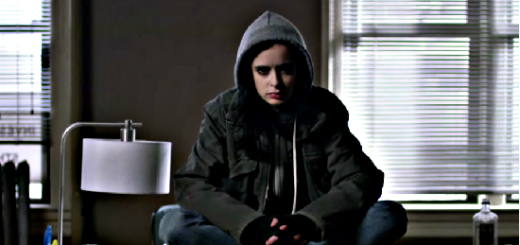Bob Ingersoll The Law Is A Ass #377
MINDING OTHER PEOPLE’S BUSINESS
Now if you or I had said what Detective Erickson said of a previously non-violent person who suddenly snapped and committed a vicious assault in Scarlet Witch #1; “He claims to have no recollection of his actions, which is the first step to an insanity plea;” we would have been correct. But unlike Detective Erickson, you or I don’t live in the Marvel Universe. Or the DC Universe, we don’t even live in the slightly more mundane Dark Circle Universe. We live in the completely mundane Life As We Know It Universe.
The Life As We Know It Universe is a universe where there aren’t mutants, aliens, freaks, supernatural beings, master hypnotists, and Stan knows what else out there that are all capable of mind control. We don’t live in a world where any one of those beings could take over our minds or bodies and force us to things we wouldn’t ordinarily do. (At least, I don’t think there are but I did watch Here Comes Honey Boo Boo once.)
Seriously, if you do a search on the term mind control in the Marvel Comics Wiki, you’ll find eight pages each with sixteen entries and then ninth page with another thirteen entries of characters who exhibit the ability to control minds. And those entries didn’t even include Maynard Tiboldt, who just uses good old-fashioned hypnosis to force others to do his bidding. Or demonic possession https://en.wikipedia.org/wiki/Demonic_possession, walk ins such as Deadman, or other plot devices.
The point being, in the Marvel Universe, where mind control is as prevalent as halitosis in a garlic festival, how does a simple prosecutor ever get a conviction? Even when a perp was caught red-handed, said perp could claim that he or she didn’t want to do it, someone like Kilgrave or Puppet Master took over his or her mind and forced him or her to commit the crime. Would even one hundred eyewitnesses all of whom saw the defendant commit the crime and positively identified the defendant in court be enough to get past the reasonable doubt raised by a literal “The Devil Made Me Do It” defense?
The problem wouldn’t be any better in the DC Universe. The same mind control search in the DC Comics Wiki yields eleven pages of sixteen entries, plus a twelfth page with one entry of mind controllers. If anything, the problem would be even worse there.
And it’s not just mind control. What about shape shifters? Again, you could have one hundred eyewitnesses all say, “We saw D. Fendant kill Mr. Boddy in the Library with the wrench,” and Mr. Fendant could argue it wasn’t him the eyewitnesses saw, it was Mystique or Clayface or a Skrull or a Durlan who changed their appearance to look like Mr. Fendant for their own nefarious reasons. Or going back one step, maybe one of those 198 mind controllers, one hypnotist, assorted demonic possessors, other assorted walkers in, or abundant plot devices we were talking about earlier used their powers to make the eye witnesses think they saw Mr. Fendant, when he had nothing to do with the crime.
Either way, it could shove so much reasonable doubt into the case that it would turn what was once a slam dunk into a hard-to-swallow turducken.
What’s a prosecutor to do?
I don’t know.
Maybe the prosecutor could convince a jury that none of those very possible possibilities had happened. After all, juries in our Life As We Know It Universe are extremely reluctant to accept the insanity defense. The Not Guilty By Reason of Insanity plea is only used in about one percent of all felony trials and fact finders return a verdict of N.G.R.I. in only one-quarter of the cases where the defense is even raised. Maybe juries in the Marvel or DC Universes would be equally reluctant to find a defendant not guilty by reason of mind control, shape shifting, possession, walk in, or other plot device.
Maybe. Or maybe not.
Again, I don’t know.
I do know this: the prevalence of mind controllers and shape shifters in our comic-book universes would make life for the Harvey Dents and Blake Towers of those worlds interesting. But interesting in the “May you live in interesting times” is a curse kind of way.
Oh, I also know something else: I haven’t finished wrapping my Christmas presents yet. Hell, I haven’t finished my Christmas shopping yet. So, while I can to raise the questions and point out the problems, I don’t have enough time to analyze them more fully.
In fact, all I do have time for is to say, “Merry Christmas, everyone.”













